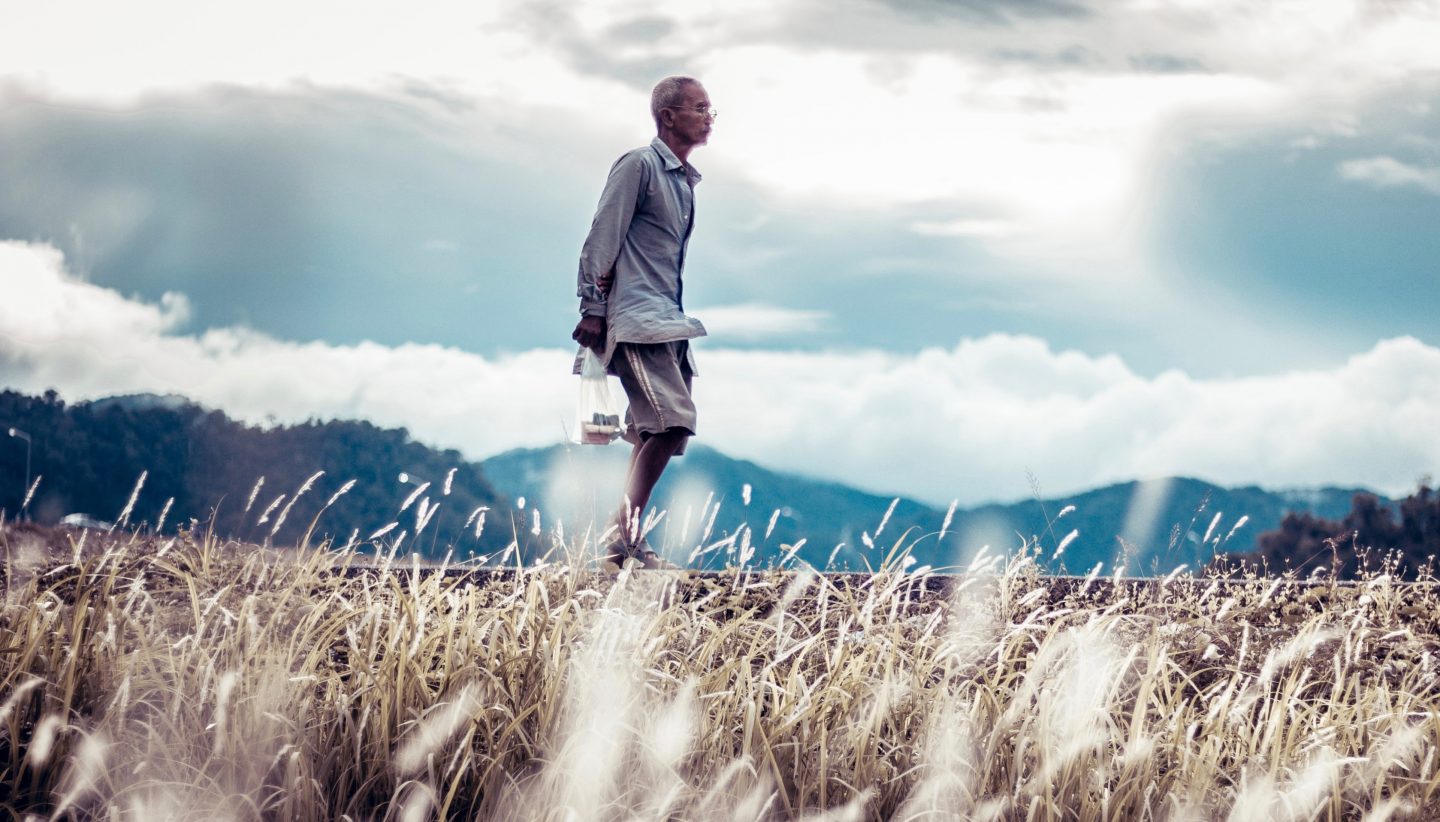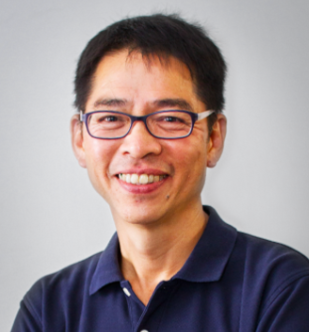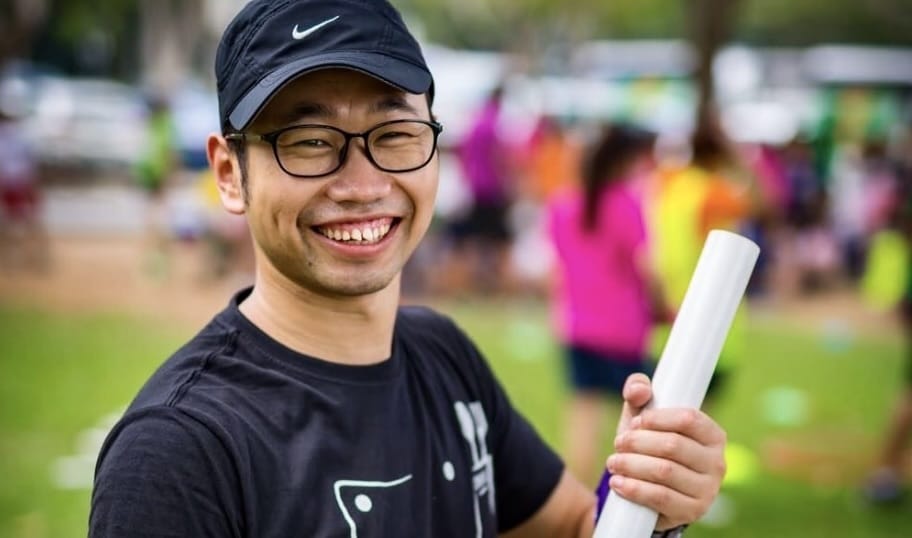
"The gulf that separates me from God is precipitous even though, in my smugness and comfort, I may think it just a two-metre grassy patch," writes Dr Tan Lai Yong after an unexpected encounter with a stranger on a grassy slope one day. Photo by Frame Harirak on Unsplash.
And when he came up out of the water, immediately he saw the heavens being torn open and the Spirit descending on him like a dove. And a voice came from heaven, “You are my beloved Son; with you I am well pleased.” (Mark 1:10-11 ESV)
And Jesus uttered a loud cry and breathed his last. And the curtain of the temple was torn in two, from top to bottom. (Mark 15:37-38 ESV)
With COVID-19, the walkways in and around the hospital are so quiet.
I passed by an elderly man and he gave me a hesitant wave. I waved back and walked on. There were only the two of us on that path.
He was standing on a grass patch in between two cemented paths.
I assumed that he was one of the nicotine migrants – cigarette smokers who trekked out of the hospital zone to smoke, thus his sheepish smile and his hesitant wave.
“Before I met this elderly man, I never thought two metres of grass could be so paralysing.”
I passed him and when I turned to look back, he was still standing on the same grass patch and he gave me another hesitant wave.
I backtracked and stood by him and asked if he was okay. He replied that he wanted to take a short cut between the two cemented pathways but the slope was too steep and the grass was slippery.
“I cannot walk forwards and cannot go back. I think I will fall.”
He looked down at his swollen feet that were squeezed into a pair of plastic flip-flops. The grass patch was no more than two meters across and the incline was barely discernible.
I held his hand and he shuffled across. He gave me a big smile of relief and gratitude.
He was not a nicotine migrant, just an elderly man on his way home after seeing the doctor. He lives in a rental flat and wanted to cross the grass patch to the bus stop to catch a bus home.
Two metres
Before COVID, I often stood on the premise that problems can be solved as long as we get the right people, garner the resources and put in the effort. Of course, as Christian, I add prayer.
Like the man on the grassy slope – the gulf that separates me from God is precipitous.
For church work, missions could be about investing the needed “time, talent and treasures” with the right strategy to reach the nations. Of course, as Christians, we add prayer.
Before I met this elderly man, I had never thought that this two metres of grass by the hospital and the slight incline could be so paralysing.
Before COVID, I never thought that a simple virus could be so utterly disruptive.
I offered to get him a taxi, to pay for his ride home. He hesitated and then said something about him being too dirty to sit in a cab. He looked at his swollen, dusty feet and then at his rickety two-wheeled shopping cart that was overflowing with plastics and junk that he hoarded, and said that his things were too dirty.
A tearing apart
That day, I listened to this song “Living Hope” by Phil Wickham:
How great the chasm that lay between us
How high the mountain I could not climb
In desperation, I turned to heaven
And spoke Your name into the night
Then through the darkness, Your loving-kindness
Tore through the shadows of my soul
The work is finished, the end is written
Jesus Christ, my Living Hope
I now understand a little better, that I, too, am like the man on the grassy slope – the gulf that separates me from God is precipitous even though, in my smugness and comfort, I may think it just a two-metre grassy patch.
In our rut, we dig more divisions and chasms.
I have hoarded pride and nursed countless wounds. I have baggage.
I need help to get across but life is often too crowded and I do not wave at strangers.
The apostle Mark writes that the heavens were torn open and the Spirit descends on Christ like a dove (Mark 1:10). Such is the gulf that separates God and us that the heavens must be torn asunder for the Spirit to come unto Jesus.
Mark uses the Greek word σχίζω (transliterated as schizō) to describe the tearing apart. It tells of a violent and powerful disruption of the skies.
COVID-19 has shown us that there are many chasms in our society.
This word is used only twice in the New Testament. Mark uses this word again at the crucifixion. The thick curtain of the temple was σχίζω (schizō, torn apart) when Jesus died.
The first σχίζω (schizō) is to tear up the heavens so that the holiness of God can descend on earth (Mark 1:10).
The second σχίζω (schizō) is to tear up the curtain in the temple (Mark 15:38) so that by Christ’s death on the cross, we can now enter the holy of holies, into the presence of God.
Hearts torn asunder
COVID-19 has shown us that there are many chasms in our society.
The virus has revealed that we have in Singapore, families that do not have Internet or computers at home. We re-discover that many elderly live alone and need support.
Let us, even in our feebleness, stand firm and stand by the weak to find ways to overcome injustice.
And as the infection rate rises steeply among lowly-paid foreign workers, we may be tempted to think that it is “them” and not us – in our rut, we dig more divisions and chasms.
When we get it right with disease control, and we do right by caring for foreign workers, going on to make sure that they live in better housing, and have better work conditions, I fear a perverse evil may strike.
Unscrupulous agents would tell a poor and desperate villager who is looking for menial work to feed his family that he has to pay a higher “agent fee” to come to Singapore as the salary is good and the conditions are getting better. Currently, some workers tell me they paid $5,000 to come here.
I pray this evil will cease but if it happens, then let us, even in our feebleness, stand firm and stand by the weak to find ways to overcome this injustice.
Let our hearts be σχίζω (schizō) by the love of Jesus.
We are an independent, non-profit organisation that relies on the generosity of our readers, such as yourself, to continue serving the kingdom. Every dollar donated goes directly back into our editorial coverage.
Would you consider partnering with us in our kingdom work by supporting us financially, either as a one-off donation, or a recurring pledge?
Support Salt&Light




